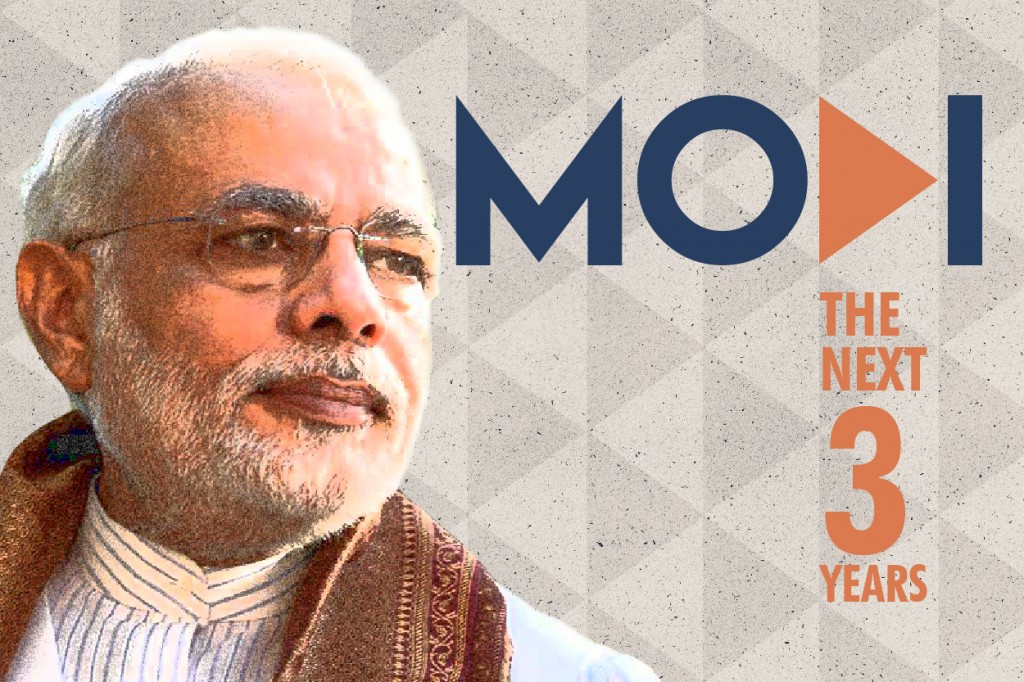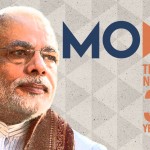On 26 May 2016, the Narendra Modi-led BJP government will complete two years in office. While there will be much analysis on past deeds and actions. Gateway House seeks to look ahead at the next three years.
We offer you a Modi special: an assessment of where his government has taken India so far and what are the paths which lie ahead for the next three years.

Modi in the U.S.: a changed landscape by Seema Sirohi
Prime Minister Modi’s skills will be tested on his upcoming visit to the United States. The challenge comes in light of recent anti-India sentiments voiced at a U.S. Senate Foreign Relations Committee hearing. With Modi set to address a joint session of the U.S. Congress, this is an opportunity to address all concerns, be it on policy or polity.
India’s five-cornered trade strategy by Rajrishi Singhal
Five rather unfavourable trends define India’s trade performance over the past two years; these trends also provide useful pointers as to where India’s future trade strategy can go over the next three years as it deals with a global economic slowdown, the rise of megatrade agreements and a pivot to a more intensive trade relation with the U.S.
Bioregions: India’s strategic imperative by Rajni Bakshi
Prime Minister Modi’s term has been marked by a resolve to improve cooperation among South Asian nations. These proactive efforts can bear rich fruit if the Modi government promotes the concept of geoeconomic and geopolitical equations being seen through the lens of bioregions. There are significant precedents which the Modi government can build upon
Has nationalism made a global comeback? by Neelam Deo and Aditya Phatak
Narendra Modi’s landslide victory in India’s 2014 general elections, despite his hardline nationalist image, was viewed as a localised phenomenon. But two years later, voters across the world from Europe to Philippines seem to be tilting towards leaders with the same nationalist tag.
India’s defence: towards self-reliance by Sameer Patil
Speedy clearances to long-pending equipment demands of the Indian military and a push for local defence production have been the hallmarks of two years of the Modi government. The next three years must create that defence industrial base, encourage private sector participation and focus on R&D
India’s role in a changing global economy by Anoop Singh
India needs to be fully engaged in the emerging G20-led international policy agenda being developed to deal with global structural weaknesses and raise public investment where fiscal space is available. India and many other emerging markets clearly offer higher investment returns—partly on account of their demographics—and should remain attractive to the global savings glut with their deepening international integration.
Progressing ‘Diplomacy for development’ by Rajiv Bhatia
Are we witnessing a new genre of diplomacy for development? Prime Minister Modi’s clear articulation and vigour have convinced most people that a fast, inclusive, and sustainable socio-economic development of India is the government’s primary goal, and increased cooperation with external partners and effective diplomacy are critical to achieve this mission.
India’s Act East Policy so far and beyond by Ashok Sajjanhar
In two years, the Modi government’s Act East Policy has gone well beyond the focus on economic ties of its predecessor, the Look East Policy. It has made progress on many wider fronts, including connectivity and defence collaboration. India must now build on this success and further consolidate relations and trade links with ASEAN and beyond.
India’s energy: three years, three aims by Amit Bhandari and Kunal Kulkarni
Relatively low fossil fuel prices have created a favourable climate for the Modi government to secure India’s growing energy needs in a sustainable manner and at fair prices. The government should also encourage locally-built wind and nuclear options to secure India’s long-term needs.
India: openly-allied with the U.S. by Neelam Deo and Aditya Phatak
After nearly a decade of moving slowly towards the U.S. on critical matters including nuclear power, the recent bilateral agreement to share military facilities and have anti-submarine warfare talks, suggest that Prime Minister Narendra Modi will have India sail the oceans with the American eagle.
These articles were exclusively written for Gateway House: Indian Council on Global Relations. You can read more exclusive content here.
For interview requests with the authors, or for permission to republish, please contact outreach@gatewayhouse.in.
© Copyright 2016 Gateway House: Indian Council on Global Relations. All rights reserved. Any unauthorized copying or reproduction is strictly prohibited


